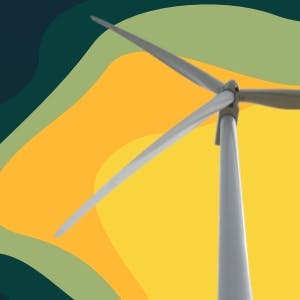- Home
- All updates
- EDGE Insights
- Industries
- Company Search
- My Watchlists (Beta)
EDGE Insights
Filter
EDGE Insights
Next Generation Nuclear Reactors
Alternative Energy
Jun 28, 2023
Last week:
EDGE Insights
State of tech in Financial Services: How AI, blockchain, and biometrics are forging the future
Financial Services
Nov 13, 2024
EDGE Insights
Ultra-Fast Delivery
Retail Industry Robots
Nov 11, 2024
EDGE Insights
ElevenLabs: The software platform for generating natural-sounding text-to-speech.
Generative AI Applications
Nov 6, 2024
EDGE Insights
Glean: An enterprise search and knowledge discovery platform to improve workplace productivity
Generative AI Applications
Nov 6, 2024
EDGE Insights
Hebbia
Information Technology
Nov 5, 2024
EDGE Insights
Virta Health: The virtual care platform reversing Type 2 diabetes and reducing medication for chronic metabolic conditions
Preventive Healthcare
Nov 5, 2024
EDGE Insights
2024 US elections: Comparing key industry impacts of Democratic and Republican presidencies
Oct 28, 2024
EDGE Interview
Art Levy, Chief Business Officer of Brex, on the strategy of Brex Embedded
Neobanks
Oct 24, 2024
EDGE Insights
ClickUp, an all-in-one productivity platform that combines project management, documents, tasks, and chat.
Remote Work Tools
Oct 23, 2024
EDGE Insights
Next-gen Climate & Energy (Q3 2024): CCUS and hydrogen in spotlight; investors remain cautious ahead of US elections
Energy & Climate Change
Oct 16, 2024

Alternative Energy
Jun 28, 2023
Next Generation Nuclear Reactors
The following report was prepared and published by our sister platform SPEEDA—May 2023.
Trend Overview
Next-Generation Nuclear Reactors Recognised for Improved Safety and Cost Efficiency but Environmental Concerns Remain
Nuclear power is a fast-growing field in the energy sector, garnering global attention in recent years for its potential as a low-carbon energy solution, with the EU conditionally recognising nuclear power as a “green” source of energy and a number of countries beginning to reconsider their energy policies in the wake of Russia’s invasion of Ukraine. Such developments, meanwhile, have led to a greater push for the development of next-generation nuclear reactors, including a memorandum of understanding (MOU) on joint development signed by TerraPower (USA)—led by Microsoft founder Bill Gates—and Mitsubishi Heavy Industries (JPN) in 2022. In addition to impacting the extensive supply chains topped by manufacturers of heavy electrical equipment, the emergence of next-generation nuclear reactors could potentially offer a new avenue for decarbonisation to whole countries and separate corporations that have previously been hesitant to adopt nuclear power for various reasons.
While the definition of next-generation nuclear reactors remains unspecific, it generally encompasses small modular reactors (SMRs), which are significantly smaller than conventional nuclear reactors, and improved Generation IV (Gen IV) reactors that use new types of fuel. Compared to conventional nuclear reactors, these reactors are expected to address the issues facing the entire energy field, as they have been improved to tackle the key “3E+S” focus area of Japan’s energy policy (3E+S = Energy Security, Economic Efficiency, Environment + Safety), with a particular focus on the areas of safety and economic efficiency. However, opinion is easily divided on the environmental friendliness of next-generation nuclear reactors, owing to concerns surrounding nuclear waste and the threat of radioactive contamination in the event of an accident.
This report will take a closer look at the types and features of various next-generation nuclear reactors under development. It will also examine trends in recent government policies and the possibilities and outlook for the use of next-generation nuclear reactors as a source of energy.
Contact us
Gain access to all industry hubs, market maps, research tools, and more
Get a demo
By using this site, you agree to allow SPEEDA Edge and our partners to use cookies for analytics and personalization. Visit our privacy policy for more information about our data collection practices.